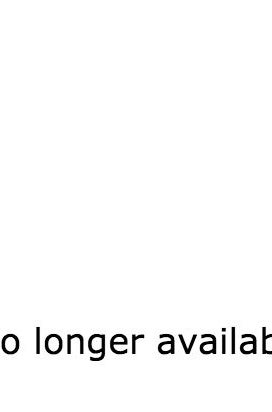
When Russell T. Davies created the British show Queer as Folk, in 1999, nothing like it had ever been seen on television. The beloved 10-episode series presented an unfiltered, unclothed, often unflattering, and entirely unprecedented depiction of gay life in premillennial Manchester, England. In addition to spawning an equally popular American version, the Queer as Folk pilot introduced the world to a very young Charlie Hunnam and offered an instructional crash course in rimming.
After Queer as Folk came to an end in 2000, Davies worked on several shows in the U.K. (Bob & Rose, The Second Coming, Mine All Mine, and Casanova) before he revived Doctor Who in 2005 and turned the classic series into a contemporary juggernaut that produced two spin-offs (Torchwood, which ran from 2006 to 2011, and The Sarah Jane Adventures, which ran from 2007 to 2011).
While Doctor Who remains an ongoing series, the extensive workload led Davies to hand over the reins to writer Steven Moffat in 2008. "I had enough of spaceships and lasers and monsters," Davies told BuzzFeed News during a recent phone interview. "I really wanted to make a comeback in writing about men and life and sex and bedrooms and mortgages and death and the sheer nightmare and brilliance of forging your way through the world every day."
But Davies faced a champagne problem when he set out to make a spiritual successor to Queer as Folk. "What I'm always looking for — and it doesn't have to be about gay life at all — [are] those wide open areas where no writer has found it," he said. "Where there's all this open air and fresh material, brand-new territory. That's the place to be."
For a man dedicated to telling stories that have never been seen before, he was reentering an entirely different television landscape in terms of LGBT visibility. Thanks to shows like the U.S. Queer as Folk remake, Will & Grace, Degrassi: The Next Generation, The L Word, Nip/Tuck, Torchwood (also created by Davies), Glee, Shameless, True Blood, Orange Is the New Black, The Fosters, Looking, and How To Get Away With Murder, there were fewer untapped areas of gay life to shine a light on for the first time.
And Davies had done the legwork. "I'm a great consumer of TV," he said. "When a new drama comes along, it's impossible for me not to watch it. You tell me there's that beautiful gay man on How To Get Away With Murder, and I'm there like a moth to a flame. It just happens to be a brilliant show — and god, he's gorgeous. When Looking came along, I had to watch it. It turned out to be brilliant, but even if it had been the worst thing in the world, I would have watched all 18 episodes. I just have to."
After all that research, Davies felt there was still an area, and an audience, that had gone unaddressed: the sex lives of gay, middle-aged men. This came as a relief, considering the groundwork for his latest series Cucumber and Banana, which premieres April 13 on Logo, had been laid a long time. "It's been ticking away in my head ever since I wrote the last words of Queer as Folk," Davies said. "I probably typed 'The End,' closed the file, and then started thinking about the character who eventually became Henry [Vincent Franklin]."

The hour-long Cucumber focuses on the romantic misadventures of middle-aged Henry, his longtime boyfriend, Lance (Cyril Nri), and the sexual dysfunctions that threaten to drive them apart. "I noted over the years, couple after couple was not having penetrative sex and that fascinated me," he said of the central issue at the heart of Cucumber. "In a world where gay men are perceived as only having penetrative sex and demanding penetrative sex and where homophobes' greatest problem with homosexuality is very often the actual physical act, I wondered why those not having penetrative sex — happily not having penetrative sex — were not talking out loud about it. It seemed to me to be a bit of a secret in the community, and that's the territory I run towards: If people aren't talking about it, then I will start talking about it. I just love that."
"There was a lot to say there," he continued. "A lot to explore without ever reaching grand answers. I'm not trying to solve the problem and say, 'This is what to do, boys. Follow me this way for a good fuck.' I hope it's cleverer than that, more subtle and adult than that."
While the initial seeds for the show were planted nearly 15 years ago, Davies said that with every improvement — in both technology and society — the show changed right along with it. "It constantly updated itself in my head," he said. "I was always thinking about it in some quiet way, every single day. I mean, we got smartphones, in comes Grindr, in comes the different laws. Our ways of thinking changed; our way of talking to each other changed."
But for all the advancements in television, in technology, and within the community itself, Davies found that very little had actually changed when it came to writing about the LGBT experience. "The world is much more technology driven, but I don't think I've discovered a single new emotion," he said. "For thousands of years people have been falling in and out of love, loving the wrong people, loving no people, loving everyone too much or too little, but loving in exactly the same ways."

Following Cucumber is Banana, a half-hour series that shines a light on other slices of gay life that would never enter Henry's more mundane existence. The shows, which aired back-to-back but on separate channels in England, have been repackaged as one for Logo.
Banana serves as a counterpart series that gave Davies the chance to right a wrong that had plagued him for nearly two decades. "When I wrote Queer as Folk, a lot of minority groups piped up complaining that it didn't represent them," he recalled. "Lesbians were up in arms, saying, 'We're not on this show.' I was literally … attacked in public meetings with lesbians claiming I'd let them down. This time, I kind of looked ahead at Cucumber and realized that it would have very few female characters center stage because it was entirely about men, so I could then create Banana to explore all the worlds that Henry's life would never touch upon." Several of Banana's eight episodes revolve entirely around lesbian characters, while the fourth episode focuses on Helen, a trans woman played by trans performer Bethany Black. "That is Britain's first trans character played by a trans actor," Davies said of the episode. "I'm immensely proud of that."
That emotion extends to the entirety of Cucumber and Banana. Davies got to make exactly the show he had spent 15 years envisioning — ironically because of the shows he spent 15 years making.
"I know when I'm saying this that other writers reading this will want to stab me with knives because I am in a terribly privileged position where I'm very successful in this country. I kind of get to make whatever I want," Davies said. "But I treat that with responsibility; I work hard, I work honestly, and I work properly. I don't take advantage of that. I have been really diligent with myself; I believe everything I write, because I'm honest about it and I push it as far as it can go, but that is the truth of it."
"In my experience, they only stop you and censor you and change you when you're rubbish," he continued. "I have gotten every story I ever wanted to make made because I'm honest with it. I wasn't born with any power; I wasn't born with any wealth. I simply worked very hard and very honestly and believed in everything I ever wrote. So I've never had any problems."
Then he paused, and added, with a laugh, "Perhaps the executives who want to argue with me just don't let me in the door."
Cucumber and Banana premieres April 13 at 10 p.m. on Logo.
"Queer as Folk" took place in Manchester. A previous version of this story misstated the location as London.



